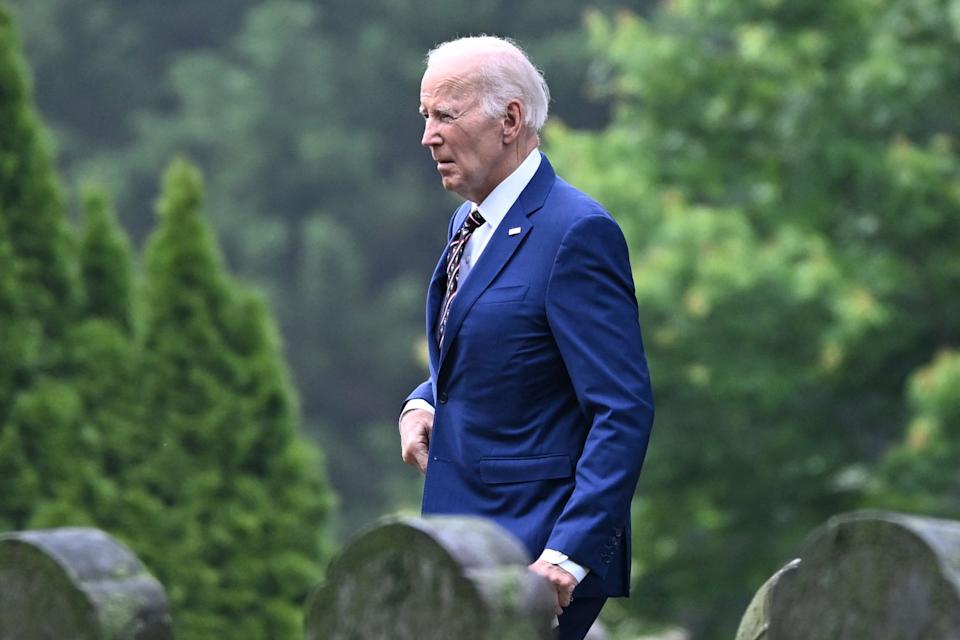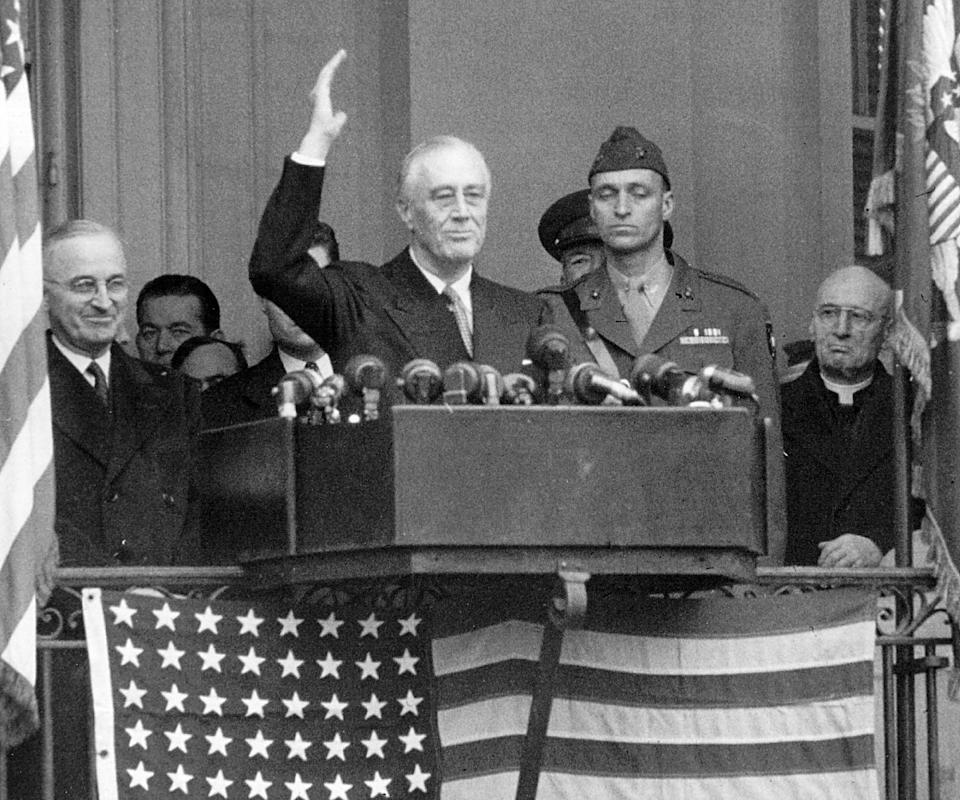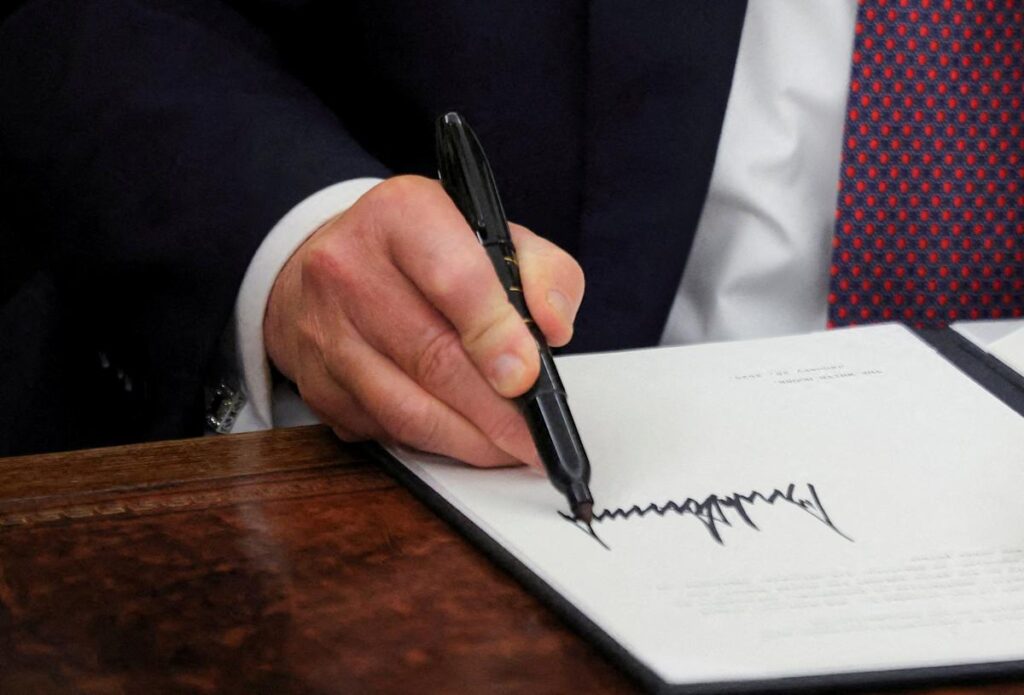Given the many big names who have received pardons recently by President Donald Trump, it’s fair to ask, how do you get a pardon, anyway?
Trump pardoned a new wave of people in recent weeks, including former Connecticut Gov. John Rowland, the rapper NBA Youngboy — whose real name is Kentrell Gaulden — and Todd and Julie Chrisley of the reality TV show “Chrisley Knows Best.”
Trump has pardoned more than 1,500 people since he took office in January, most of whom were involved in the Jan. 6, 2021 attack on the United States Capitol. In his last presidential term, Trump pardoned 238 individuals.
Story continues below photo gallery
A presidential pardon offers punishment relief for people convicted of federal crimes. Generally, applicants must wait five years after completing their sentence to apply for a pardon. The application then goes under review with a background check.
Punishment relief can include restoration of certain basic civil rights, such as the rights to vote, hold office, or sit on a jury, according to the Justice Department. And a presidential pardon is the only means by which a person convicted of a federal felony offense may regain their right to bear arms.
While presidents tend to issue the bulk of their pardons at the end of their terms, Trump has issued these pardons just shortly after taking office.
Of all presidents, Joe Biden issued the largest number of clemencies at 4,245. Other presidents who had substantial amounts of clemencies include Franklin D. Roosevelt with 3,687 and Barack Obama with 1,927.
How to get a presidential pardon
To get a presidential pardon for a federal offense, a person must apply through justice.gov.
The pardon application process consists of explaining the offense as well as why the individual believes the pardon should be issued. The application should also include examples of good behavior since the offense occurred.
FILE PHOTO: U.S. President Donald Trump signs documents as he issues executive orders and pardons for January 6 defendants in the Oval Office at the White House on Inauguration Day in Washington, U.S., January 20, 2025. REUTERS/Carlos Barria/File Photo
Applicants typically also submit supporting documents including court records and letters of recommendation for good behavior, such as community service.
The U.S. Justice Department has a group of people headed by the pardon attorney who explore whether there is justification for a pardon, said Norman J. Ornstein, political scientist and emeritus scholar at the American Enterprise Institute, a Washington think tank.
The pardon attorney office has a history of being very limiting in who gets recommended for pardons, Orstein said. Sometimes an attorney will say no to a pardon and the president will override it.
“The pardon attorney is bypassed more often than it should be,” Ornstein said. “Especially with Trump.”
Trump has taken a particularly unusual approach to issuing pardons.

Of all presidents, Joe Biden issued the largest number of clemencies at 4,245.
“He’s just issuing pardons and doesn’t care what the pardon attorney says or does,” Ornstein said.
“As this goes on and we see more and more outrageous people pardoned who clearly committed horrendous crimes, who went through a rigorous process of justice, were convicted by juries, and there’s no reason to pardon them other than they’ve expressed loyalty to you, that should be a bridge too far,” Ornstein said.
How to get a pardon for a state offense
For state offenses, the pardoning process varies by state. Pardons in New Jersey go through the governor, and applications are submitted through nj.gov. Pardons made by governors follow roughly the same process followed at the federal level, Ornstein said.

President Franklin D. Roosevelt issued 3,687 clemencies during his time in office, among the most of any president.
In New Jersey, several years must have also passed since the offense to be eligible. Like federal offenses, applications focus on good behavior since the offense.
Can Trump pardon himself?
With Trump’s absolute power to pardon and the rate at which he’s been pardoning, some have questioned whether the president can do a self-pardon at the federal level.
However, this possibility was largely made moot by the Supreme Court’s 2024 decision in Trump v. United States, Ornstein said.
The court ruling grants immunity from prosecution when a president is carrying out “official acts,” prompting the U.S. District Court for the District of Columbia to determine which acts would count as official and unofficial before prosecution.
This article originally appeared on NorthJersey.com: How do you get a presidential pardon?
Read the full article here


